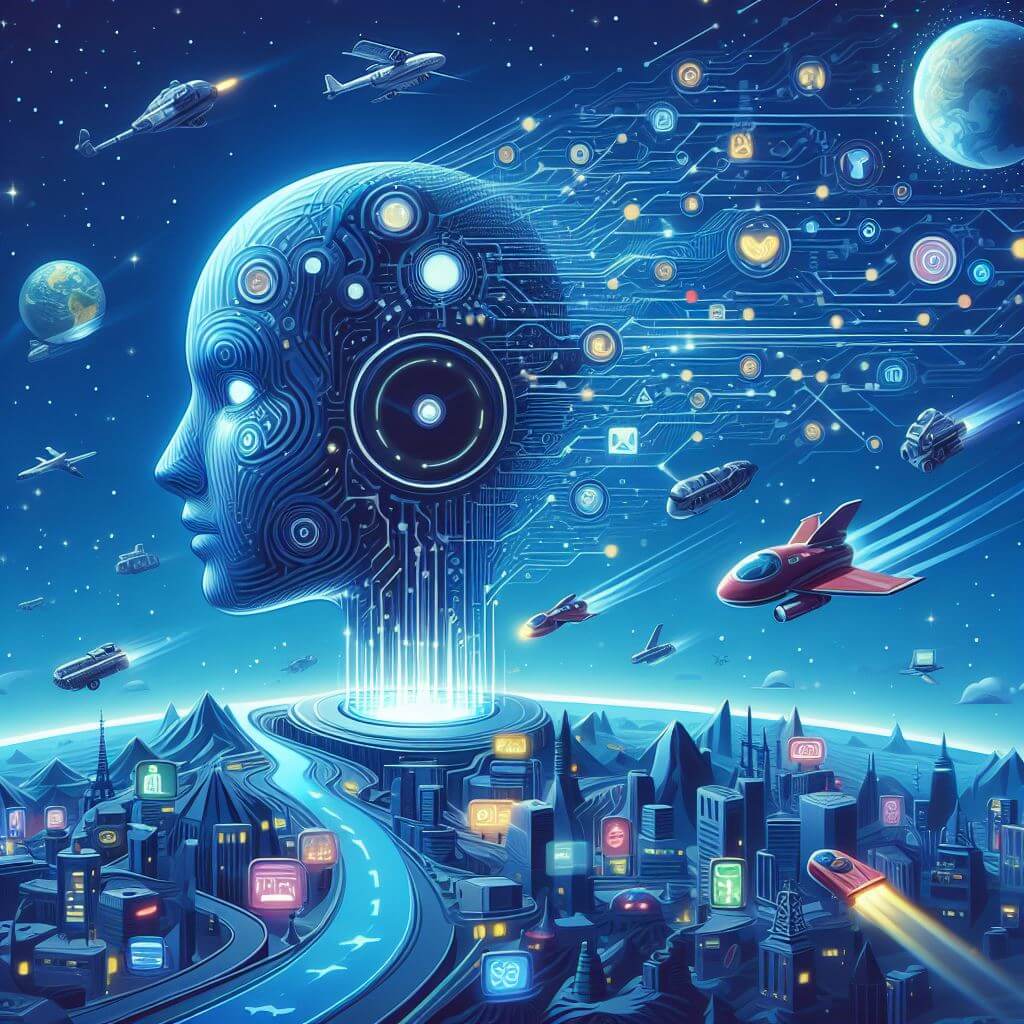In the rapidly evolving landscape of digital marketing, harnessing the power of Artificial Intelligence (AI) has become a transformative force for businesses. The ability of AI to process vast amounts of data, analyze patterns, and make intelligent predictions has revolutionized marketing strategies, offering unparalleled insights and efficiency. In this blog post, we’ll delve deep into the ways AI is reshaping marketing, the benefits it brings, and the implications for businesses seeking to stay ahead in today’s competitive market.
I. The Foundation of AI in Marketing
- Understanding Artificial Intelligence in Marketing:
At its core, AI refers to the simulation of human intelligence in machines. In the context of marketing, AI involves the use of algorithms and machine learning to automate tasks, analyze data, and extract valuable insights. This transformative technology is not merely a trend but a fundamental shift in how businesses approach their marketing strategies. - Key Components of AI in Marketing:
a. Machine Learning (ML): ML algorithms enable AI systems to learn from data, improving their performance over time without explicit programming. In marketing, this means more accurate predictions and personalized experiences.
b. Natural Language Processing (NLP): NLP allows AI systems to understand and interpret human language, facilitating the development of chatbots, virtual assistants, and sentiment analysis tools for marketing purposes.
c. Predictive Analytics: AI-driven predictive analytics involves using historical data to predict future trends and consumer behavior, providing marketers with a valuable tool for strategic decision-making.
II. The Unparalleled Benefits of AI in Marketing
- Enhanced Customer Insights:
AI’s ability to analyze vast amounts of consumer data provides businesses with unparalleled insights into customer behavior, preferences, and trends. This enables marketers to tailor their strategies with a level of precision that was previously unimaginable. - Personalized Marketing Campaigns:
Personalization has become a cornerstone of effective marketing, and AI takes it to new heights. By leveraging consumer data, AI can create highly targeted and personalized campaigns, ensuring that each interaction resonates with the individual recipient. - Automation for Efficiency:
One of the most significant advantages of AI in marketing is automation. Repetitive and time-consuming tasks, such as data analysis, content curation, and even customer interactions through chatbots, can be automated, allowing marketing teams to focus on more strategic and creative aspects of their work. - Improved Customer Experience:
AI-powered tools like chatbots and virtual assistants enhance the customer experience by providing real-time support, personalized recommendations, and seamless interactions. This not only increases customer satisfaction but also contributes to brand loyalty. - Data-Driven Decision Making:
AI equips marketers with data-driven insights, enabling more informed decision-making. By relying on predictive analytics and machine learning algorithms, businesses can make strategic choices backed by a deeper understanding of market dynamics and consumer behavior.
III. Real-world Applications of AI in Marketing
- Chatbots and Virtual Assistants:
The use of AI-driven chatbots has become prevalent across websites and messaging platforms. These virtual assistants engage with users, answer queries, and guide them through the sales funnel, providing a personalized and interactive experience. - Recommendation Engines:
E-commerce platforms, streaming services, and content providers leverage recommendation engines to suggest products or content based on user preferences. These engines, driven by AI, significantly contribute to user engagement and satisfaction. - Email Marketing Optimization:
AI enhances email marketing by analyzing user behavior and optimizing the timing, content, and frequency of emails. This ensures that marketing messages are delivered when they are most likely to be read and acted upon. - Social Media Marketing:
AI plays a pivotal role in social media marketing by analyzing user engagement, sentiment, and trends. Marketers can use this data to create targeted campaigns, identify influencers, and optimize their social media strategy for maximum impact.
IV. Challenges and Ethical Considerations
- Privacy Concerns:
As AI relies on extensive data analysis, privacy concerns have become a central issue. Marketers must prioritize transparent communication about data collection practices and comply with regulations to build and maintain consumer trust. - Algorithmic Bias:
AI algorithms are not immune to biases present in the data on which they are trained. It’s crucial for marketers to regularly assess and address any biases to ensure fair and unbiased decision-making. - Human Touch vs. Automation:
While automation is a powerful tool, finding the right balance between AI-driven automation and the human touch in marketing is essential. Businesses must strive to create a personalized yet genuine connection with their audience.
Conclusion
In conclusion, the integration of AI into marketing strategies represents a seismic shift in the industry. The power of AI lies not only in its ability to streamline processes and increase efficiency but also in its capacity to provide marketers with unprecedented insights into consumer behavior. As businesses continue to adopt and adapt to AI-driven marketing, those that harness its power effectively will gain a competitive edge in the dynamic and ever-changing landscape of digital marketing.
By unleashing the power of AI in marketing, businesses can create personalized, efficient, and impactful campaigns that resonate with their target audience. This transformative technology is not just a tool; it’s a catalyst for innovation and a key driver of success in the modern marketing landscape. As we move forward, the synergy between human creativity and AI capabilities will likely redefine the possibilities and boundaries of marketing, ushering in a new era of strategic and personalized engagement.
Also Read: How to Visualize Data Distributions in Python with 7 Astonishing Technique
